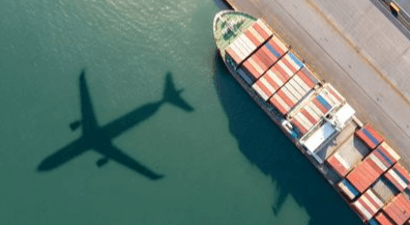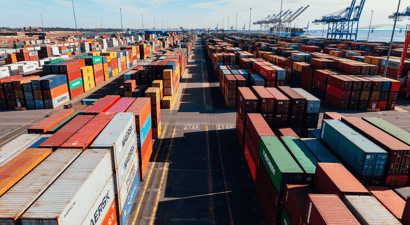South Africa Ship Arrests: Counter-Security and Wrongful Arrest
We understand that in a recent decision of the Admiralty Court in London, NatWest Markets plc v Stallion Eight Shipping Co. S.A., the Court:
- upheld the longstanding practice of not ordering counter-security following a vessel’s arrest; and
- confirmed that wrongful arrest damages will only be ordered in the event of an arrest in bad faith or through gross negligence.
We thought it might be helpful if we provided this brief advice on counter-security following a vessel’s arrest, and a loosely so-called “wrongful arrest”, in terms of South African law.
In terms of sections 5(2)(b) and 5(2)(c) of our Admiralty Act, a South African Court may in the exercise of its Admiralty jurisdiction:
- order any person to give security for costs or for any claim; and
- order that any arrest or attachment made or to be made, or anything done or to be done in terms of the Act, or any order of court, be subject to such conditions as to the court appears just, whether as to the furnishing of security or liability for costs, expenses, loss or damage caused or likely to be caused.
This empowers the Court to order that security for “any claim” be furnished and/or to make the provision of security a precondition of any order given, whether for arrest or attachment or otherwise. One of our leading writers on maritime law, Professor John Hare, notes in his book that unlike a security arrest in terms of section 5(3) of our Admiralty Act, which involves little or no discretion on the part of the Court, the Court does have a discretion as to whether it should order security for costs and like expenses.
This is not limited to security for a claim for damages arising from an arrest sought “without reasonable and probable cause” (which is the express statutory provision in our Admiralty Act providing for a right to claim damages for a loosely termed “wrongful arrest”) but includes security for an intended counterclaim to be brought in the same arbitration proceedings, with which scenario we will deal with first.
The fact of the Court’s discretion is apparent from the divergent approaches that have arisen from applications for counter-security. Another of our leading writers, Advocate Gys Hofmeyr SC, attributes this in part to the different factual backgrounds against which such cases were decided. He notes in his text book that on the one hand, if one party obtains security for its claim by reason of an arrest then as a matter of fairness it may well be right to grant the other party security for its counterclaim in the same litigation. On the other hand, there may be circumstances which militate against such an order.
For example:
- in The Luis the provision of counter-security was ordered in an application for such security by the owner of a vessel that had been arrested for security for foreign arbitration proceedings (in which proceedings the owner wished to advance a counterclaim) on the basis that the Court had jurisdiction flowing from the initial security arrest, which constituted a (limited) submission to jurisdiction, and the applicant (the owner of the arrested ship) had established a prima facie case in respect of its cause of action in the intended counterclaim and a genuine and reasonable need for security;
- in The Leresti it was held that section 5(2)(b) applies not only to claims to be brought within the Court’s area of jurisdiction but, provided the Court has jurisdiction, to claims wherever they may be brought;
- in the Merak S it was held that section 5(2)(b) is not available to a claimant in foreign proceedings (although this case was subsequently overruled on appeal, on another point).
In summary, and in very general terms:
- the South African Court is not bound to secure all counterclaims;
- the applicant for counter-security would have to establish a prima facie counterclaim upon its merits and a genuine and reasonable need for security for its counterclaim;
- if the applicant is able to satisfy those requirements, the Court will usually order the provision of counter-security, the usual form being an order that the furnishing of security by the owner of the vessel, in the original application for an arrest for security, is conditional upon security being provided for the counterclaim and if not provided within a specified period, the ship be released from the original arrest.
So, as in England, there is no “automatic entitlement” in terms of South African law, for the owner of arrested property to be provided with counter-security. Equally, there is no automatic entitlement to counter-security, or a requirement that counter-security for any wrongful arrest is put up before an arrest of a ship (or bunkers or cargo) is brought before a court, as in many European jurisdictions.
Section 5(4) of our Admiralty Act deals with so-called “wrongful arrest” (or in the words of our Admiralty Act, an arrest made “without reasonable and probable cause”). The mere fact that an arrest might be set aside by the Court, on evidence subsequently submitted indicating that the arrest order should not have been granted or issued, for instance because the facts that were alleged to support the arrest, turn out to be incorrect, does not mean that damages will automatically be recoverable.
Section 5(4) reads as follows –
“Any person who makes an excessive claim, or requires excessive security, or without reasonable and probable cause obtains the arrest of property or an order of court, shall be liable to any person suffering loss or damage as a result thereof for that loss or damage”.
The critical portion of the provision is highlighted above in bold type. It means that as long as the applicant who moves for an arrest:
a. genuinely believes on reasonable grounds that a set of factual circumstances exist, and
b. believes on reasonable grounds that the law is such that based on those facts being correct, they have an entitlement to arrest,
they cannot be liable in damages.
The South African Courts in applying this section have looked to the belief on the part of the applicant for the arrest and only found for the party claiming damages for an arrest that has subsequently been set aside:
- where there were no grounds to believe that the facts were correct; or
- there is credible evidence rebutting that belief; or
- where prima facie the applicant was reckless and took no steps to verify the accuracy or otherwise of certain facts (as in England).
This is usually an issue that arises where allegations are made in an application for an arrest, that the target vessel sought to be arrested is an “associated ship” of the ship concerned that gave rise to the alleged claim to be referred to arbitration. It usually relates to the “facts” on which the applicant relied to prove that the corporate owner of the ship concerned was at the time the cause of action arose, controlled directly or indirectly by the same person or entity, which now controls the ship sought to be arrested as an associated ship.
However, notionally (although we are not aware of any reported decisions on this crisp point) it would equally apply if security was put up to obtain the release of the ship where the arrest was obtained for claims advanced in arbitration in (say) London, where the claim is subsequently found by the tribunal there to have been spurious, been advanced without any even prima facie potential for being prosecuted successfully and to have no validity on the merits whatsoever, perhaps having been instituted simply as a tactic to try to obtain a settlement of other, larger disputes, between the parties.





